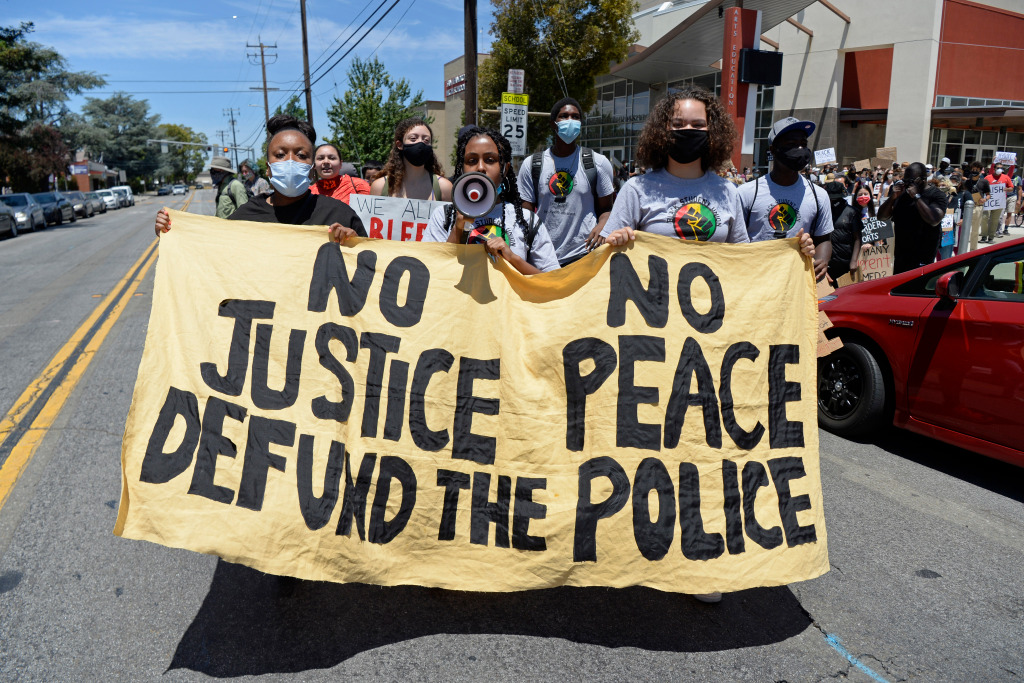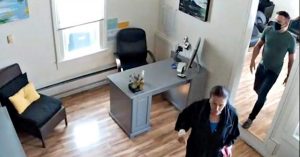Three months ago, with protests against racism and police brutality gripping the state and nation, California lawmakers had plans for new legislation that would make sweeping changes to law enforcement.
But as their session came to a chaotic end at midnight Tuesday, state legislators had only approved a handful of relatively modest changes to police practices, while more controversial proposals — to strip problem officers of their badges, broaden public access to police misconduct records and limit the use of rubber bullets and tear gas at protests — died without the votes they needed to pass.
The defeat of those measures, coming in the Democrat-dominated Legislature of a state that positions itself as a beacon of progressive government, is a stinging disappointment for activists, civil liberties groups and lawmakers, who believed the time had come for major changes meant to bolster police accountability and transparency.
“To ignore the thousands of voices calling for meaningful police reform is insulting,” Sen. Steven Bradford, D-Gardena, said in a statement early Tuesday morning after his bill to “decertify” officers who commit crimes or serious misconduct failed to get a vote in the final hours Monday. “Today, Californians were once again let down by those who were meant to represent them.”
S.B. 731 is dead for now. Tonight, #CA Democrats FAILED communities impacted by police violence. They failed to take one basic step to decertify abusive police officers that 45 other states have already implemented. We tried doing it their way. We got next. #SB731 #NAH
— Youth Justice Coalition (@YouthJusticeLA) September 1, 2020
Policing wasn’t the only issue that left advocates and lawmakers unsatisfied — bills that passed for eviction protections and housing also fell short of what many hoped to see in the shortened legislative session that was upended by the coronavirus.
The law enforcement bills lawmakers did approve included a requirement that state authorities investigate certain deadly police shootings, as well as a ban on the carotid “sleeper” restraint a Minneapolis officer used in the deadly arrest of George Floyd on Memorial Day.
But Dennis Cuevas-Romero, a legislative advocate for the American Civil Liberties Union of Northern California, noted that many police departments have already prohibited officers from using the carotid restraint. Gov. Gavin Newsom also directed the state’s Commission on Peace Officer Standards and Training after Floyd’s death to no longer offer training on the tactic.
And while Cuevas-Romero said having state authorities investigate police shootings “could be really significant,” he also noted that the bill had been amended to limit the kinds of cases that would prompt those investigations. If Newsom signs the bill into law, the state will only step in to investigate fatal police shootings of unarmed civilians — as opposed to all deaths at the hands of police, as earlier versions of the law called for.
“This was our concern from the very beginning, when all the police reform legislation was introduced,” Cuevas-Romero said. “The ones that were less impactful would be the ones that make it to the finish line,” allowing lawmakers to claim victory “without actually doing significant reform.”
The ACLU cosponsored Bradford’s decertification bill. California is one of only five states that doesn’t have such a process, and an investigation by this news organization found dozens of police officers with criminal records were still working in departments across the state.
Bradford’s bill also would have rolled back some of the legal protection known as “qualified immunity,” which shields officers from liability in many excessive force lawsuits. Activists charge the legal doctrine is a significant barrier to holding police accountable, and the bill got a late lobbying push from a raft of celebrities, including Kim Kardashian West and Los Angeles Laker Kyle Kuzma.
While we’re demanding change, right now in CA Dems are REFUSING to pass modest police reform that would keep abusive officers out of the state and end qualified immunity! @AssemblyDems are you going to make real change or just pretend like you hear us?!? #PassSB731
— kuz (@kylekuzma) August 31, 2020
Law enforcement groups say they are open to creating a decertification process, and have called for a special session of the Legislature to create one. But they vehemently opposed the bill’s limits to qualified immunity, which helped make it the most controversial of this year’s police reform proposals.
“We are pleased that the late-session rush to enact a flawed bill that would have had debilitating repercussions for police officers and public safety was not voted upon,” Craig Lally, the president of the union representing Los Angeles police officers, said in a statement after Bradford’s bill failed. “It is more important to get it right and not rushed, and we pledge our cooperation to work collaboratively with like-minded stakeholders and the legislature to get it right.”
Bradford pledged to bring the proposal back in the next legislative session.
Assemblywoman Lorena Gonzalez, D-San Diego, said she would do the same with her bill sharply limiting the use of rubber bullets and tear gas, prompted by what critics derided as a heavy-handed police response to racial justice demonstrations. That bill, which also faced opposition from police lobbying groups, similarly never came up for a vote Monday night.
The police records bill from Sen. Nancy Skinner, D-Berkeley, came even closer to passing, but also saw its time run out. The Assembly late Monday night approved Skinner’s bill after 11 p.m., with amendments that meant it needed to go back to the Senate for a final vote; it never made it to the floor in the Senate.
Skinner’s bill would have built on her 2018 police records legislation by requiring departments to turn over records relating to uses of force and complaints of discriminatory actions by officers, and creating provisions meant to force the hands of agencies that have resisted calls to turn over records.
Skinner rejected the idea that the session had been a flop for police reform, saying the Legislature made “very good progress” with the bills it did pass. Still, she said, it’s fair that people are particularly unsatisfied by the failure of the decertification and records bills.
“Those two things are essential, and we still have to get them across the finish line,” she said.



















